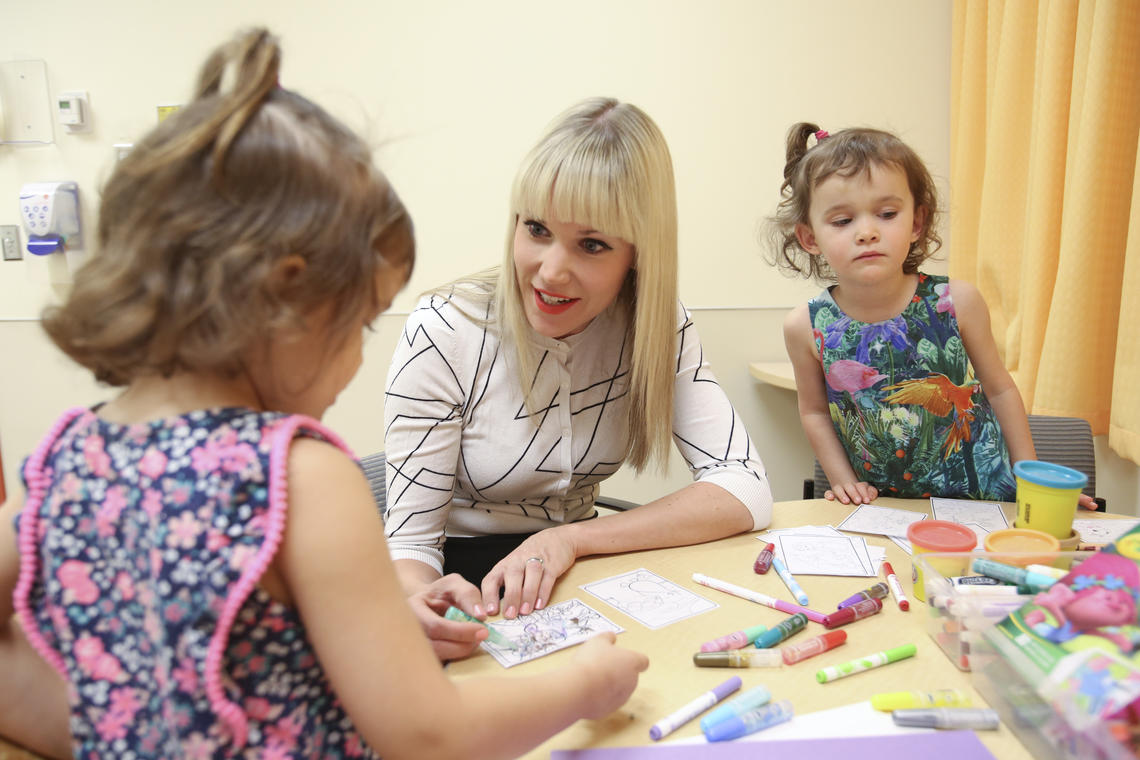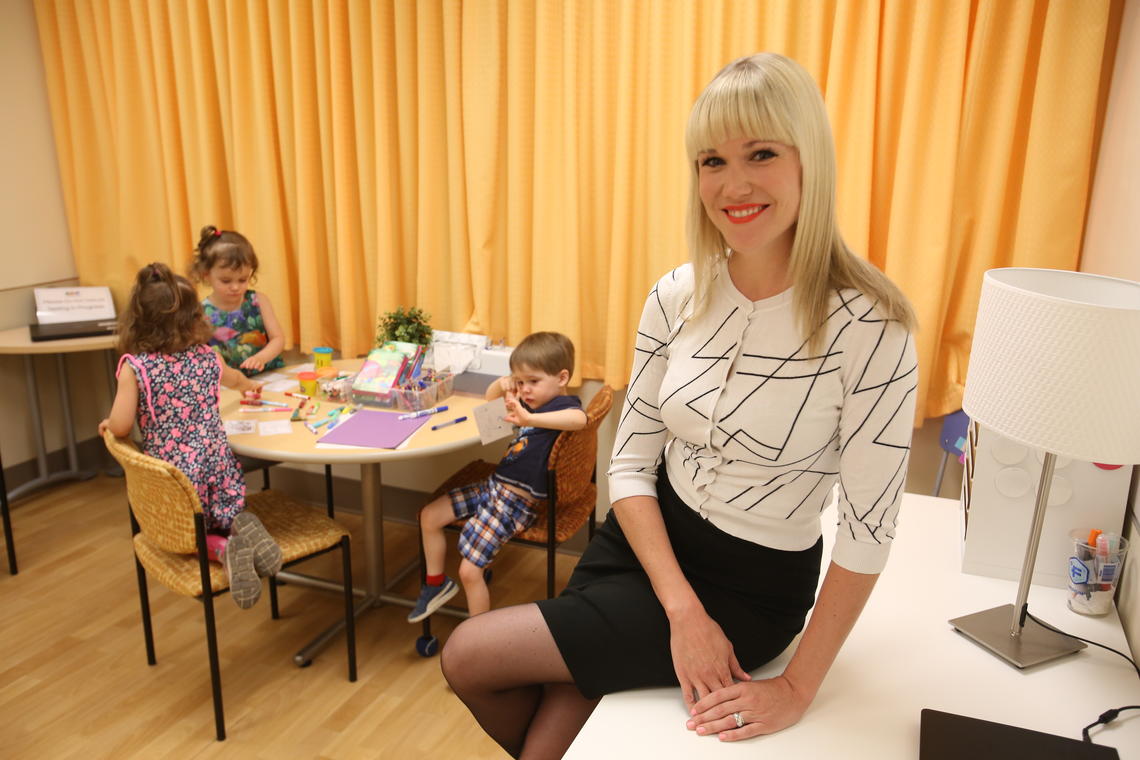Aug. 22, 2017
Study a breakthrough in understanding chronic pain in children

Melanie Noel studies pediatric pain.
Mike Ridewood, for the Faculty of Arts
A University of Calgary psychologist who studies pediatric pain has made a breakthrough in understanding the cause of chronic pain in adolescents — by focusing on those recovering from major surgeries.
Melanie Noel, an assistant professor in the Department of Psychology and a member of the Alberta Children’s Hospital Research Institute, has found that adolescents’ memories of pain following major surgeries influences their recovery and may lead to the development of chronic pain — which is pain that persists beyond the expected time of healing. Noel published her findings recently in a paper she co-authored in the journal Health Psychology.
Noel and her co-authors assert that psychological and language-based interventions may be used to help adolescents better cope with their post-surgical pain, thus reframing their memories of the pain and potentially altering the path that can lead to chronic pain.
Cause of chronic pain in youth a mystery
The study could have huge implications for the health of Canadian youth, Noel points out, given that 15 to 40 per cent of youth experience chronic pain, a growing public health epidemic (larger in scope than childhood obesity and asthma) that costs the Canadian health-care system $15 billion a year. Studies have also shown that 60 per cent of children with chronic pain will become adults with chronic pain and mental health disorders.
The cause of chronic pain in youth, however, has been nearly impossible to pinpoint. That is, until Noel and her team began to focus on adolescents who were going through major surgeries, such as spinal fusions for scoliosis.
“This is not to say that every child who has chronic pain had a surgery that led to it,” stresses Noel. “Rather, it’s that surgery is the only context where we can catch these kids before they develop chronic pain. We know that 15 to 20 per cent of children who undergo these major surgeries will develop chronic pain. So, if we can catch them early and begin to understand the factors leading to their chronic pain, maybe we can prevent it from happening in the first place.”
The study followed 66 children and their parents from two pediatric hospitals in Seattle. Reports of the children’s pain following major surgeries were compiled at one month and then at four to six months post-surgery. The results revealed that the children’s memories of the pain they experienced proved to be a strong predictor of pain experienced beyond the expected time of healing.

Noel says children prone to anxiety are often more likely to develop chronic pain after surgery.
Mike Ridewood, for the Faculty of Arts
The way children remember pain is an underlying factor
“We’ve discovered that the way children are remembering their pain is an underlying factor in the development of chronic pain,” Noel explains. “It’s not the pain they actually experience so much as the way they process those memories of the pain which is driving whether or not they’re improving, right around the time that pain can transition into chronic pain. At a certain point, these children should be feeling better but those who develop chronic pain are not.”
She adds: “The pain they’re experiencing is real even though the actual expected healing time is over. What happens is the brain takes over and starts sending pain signals, even in the absence of injury.”
Noel notes that children prone to anxiety are often more likely to develop chronic pain following surgeries. “Some children get hurt and it’s ‘Aw, that wasn’t so bad.’ Other kids, two weeks after they get a needle they’re still saying ‘Oh, that was so awful.’ More anxious kids are more likely to develop negative memories over time. We’re starting to understand who these kids are.”
New knowledge can guide post-surgery interventions
That understanding can help physicians, psychologists and even parents in helping children who may be prone to chronic pain change their course post-surgery.
“We can teach kids how to reminisce and talk about their pain experiences in a way that emphasizes anything positive about it,” says Noel. “Maybe the child coped with something well, maybe there was a really friendly nurse. It’s getting them to talk about things that aren’t just focused on the awful after effects of the surgery. It’s a way of catching it, a talk-based intervention that can possibly reframe the memories. This may actually alter the pain trajectory. It’s one thing we can do to make the recovery and future experiences of pain better.”
Melanie Noel is a University of Calgary researcher whose work is conducted within the Vi Riddell Children’s Pain and Rehabilitation Centre and funded in part by community donations through the Alberta Children’s Hospital Foundation.
